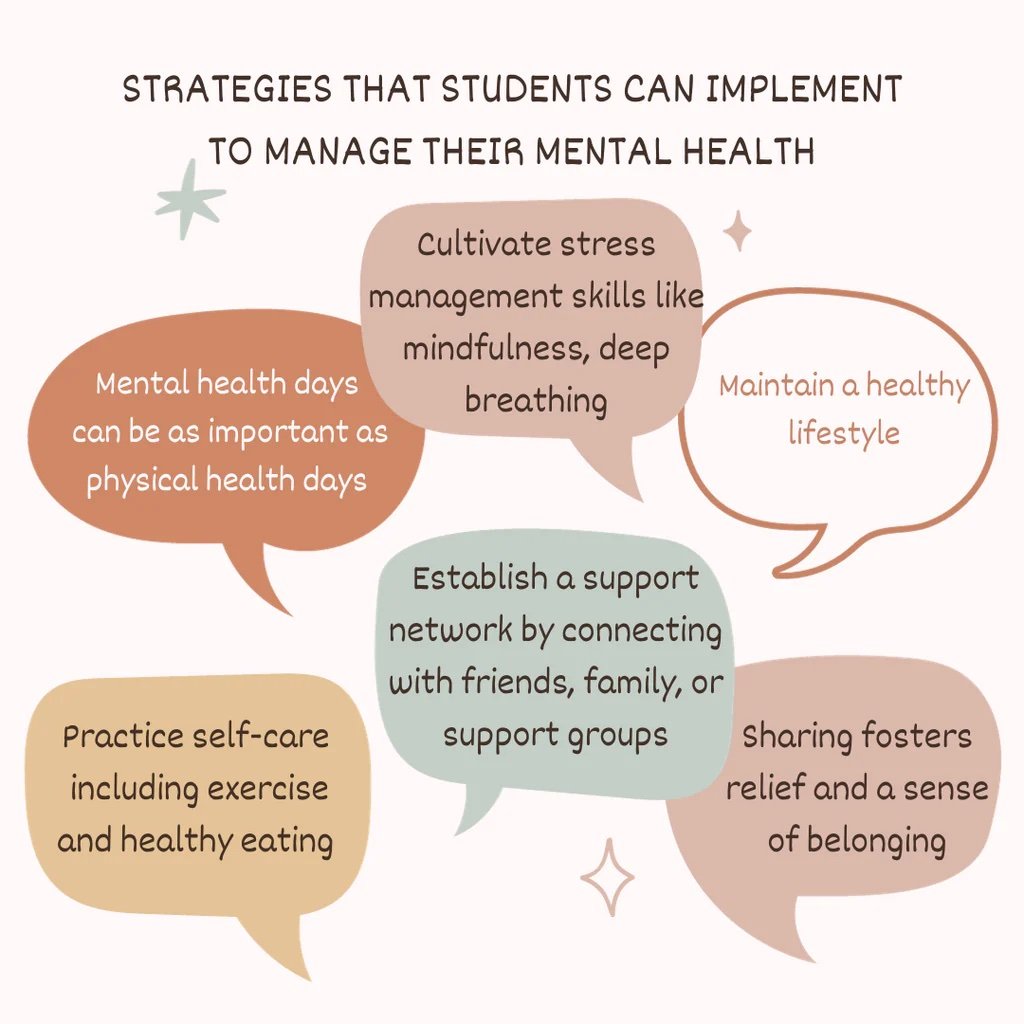As a college student, the pressure to perform academically, socially, and personally can feel overwhelming, especially during stressful periods like midterms and finals. Many students fall into the trap of thinking that the more time they spend working, the more productive they'll be. But what if we told you that taking breaks is just as important for your productivity—and mental health—as your study sessions? In fact, rest and relaxation aren’t just "nice to have"; they’re essential for maintaining your well-being and optimizing your performance. Here’s why it’s okay to take breaks, and why doing so can actually improve your mental health.
Do breaks really help my anxiety?
In short, yes! When you're constantly pushing yourself to study or work, especially with never ending deadlines, the stress can quickly spiral into anxiety. It's easy to fall into the trap of rumination, where your mind races with worries about assignments, exams, and future outcomes. This kind of mental overload doesn’t help your productivity—it diminishes it. Your brain can only focus for so long before it becomes fatigued.
Taking short breaks throughout the day gives your mind the space to reset. During this downtime, you’re not simply "wasting time." Instead, you're preventing the anxiety and mental fatigue that often arise from working non-stop. By stepping away from the task at hand, you allow your body and mind to calm down, reducing the feelings of pressure that contribute to anxiety.
How to prevent burnout
If you’re achievement-driven or struggle with perfectionism, you might think that taking a break means you’re slacking off or not working hard enough. The truth is, pushing yourself to the brink without rest only leads to burnout. Overworking, combined with the mental strain of trying to be perfect, can exacerbate feelings of inadequacy and low self-esteem.
By taking regular breaks, you're actively preventing burnout and the sense of failure that often comes with it. Downtime allows your brain to process and refresh, so you return to your work feeling more focused, energized, and able to approach challenges with a clearer perspective. Without breaks, you might end up feeling mentally drained, which can lower your motivation and increase feelings of depression or hopelessness.
How can a break help emotional regulation?
If you're dealing with stress, anxiety, or depression, downtime is crucial for emotional regulation. Constantly pushing yourself without a break can lead to emotional exhaustion, making it harder to handle stress or setbacks in a healthy way. Taking time for yourself helps you to manage your emotions better and build resilience over time.
Engaging in activities like going for a walk, practicing mindfulness, or simply taking a nap can help reset your emotional state. This can help you deal with challenges more effectively, without getting caught in a cycle of negative thinking or rumination. When you allow your emotions to settle, you become more capable of approaching your studies—or any challenge—with a clearer, more balanced mindset.
How can I maintain good mental health?
Finally, it's essential to acknowledge that regular breaks contribute to overall greater well-being. I can’t emphasize enough our mind and body connection! In college, it’s easy to feel like you're constantly on the go, with little time for yourself. But your mental health is just as important as your academic performance. Downtime helps reduce fatigue, and can increase focus and energy levels. Whether it’s a five-minute breathing exercise, a 30-minute walk outside, or a weekend spent with friends, taking time to relax and reset nourishes your mental health.
Incorporating regular breaks into your routine not only improves your academic performance but also helps you develop better coping strategies, healthier habits, and a more positive relationship with your own well-being.
Is rest really necessary?
As a college student, it’s easy to get caught up in the hustle of assignments, deadlines, and the pressure to succeed. But remember: taking breaks is not a sign of weakness or laziness. It’s a powerful tool for maintaining your mental health, boosting your productivity, and supporting your long-term well-being. Embrace the idea that rest is just as important as work—your mind, body, and emotional health will thank you for it.
Next time you're feeling overwhelmed or stuck, give yourself permission to take a break. Go for a walk, meditate, chat with a friend, or simply take a few deep breaths. You’ll return to your work feeling refreshed and ready to tackle whatever comes next—and you’ll be doing your mental health a huge favor along the way!
If you want less anxiety and to better care for yourself, I’d love to help you get there. Just reach out!
Read more about Counseling for College students in Tampa, FL
Feeling behind as a College Student, Tampa, FL
Navigating College burnout, Tampa, FL
BEGIN COUNSELING FOR COLLEGE STUDENTS IN TAMPA, FL
Navigating life in college is an exciting time, but it can also be emotional and challenging. Our team of caring therapists would be happy to offer support from our Tampa, FL-based therapy practice. You can receive the support your student deserves by following these simple steps:
Meet with a caring therapist
Start helping your student with balancing life in college.
OTHER SERVICES OFFERED WITH CHRISTIAN COUNSELING OF TAMPA
Counseling for teens isn't the only service offered by our Tampa, FL-based practice. Our team is happy to offer a variety of services in support of your mental health. Other services offered include child therapy, premarital counseling, Christian counseling, therapy for anxiety, marriage intensives, trauma, and therapy for depression. We use a variety of treatment modalities including CBT, EFT, grief therapy, and more! Feel free to learn more about us by visiting our FAQ or blog today!




